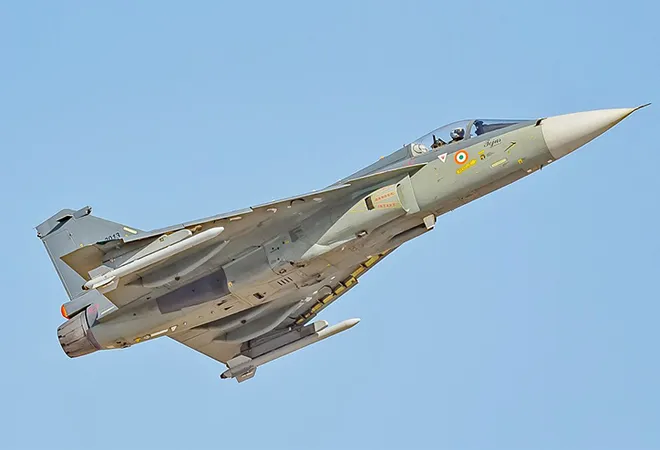-
CENTRES
Progammes & Centres
Location
We don’t need bans but an industrial ecosystem within which a defence sub-system can flourish

Independence Day is likely to see a renewed call for “Atmanirbhar (Self-reliant) Bharat”. So it is all for the good that RSS chief Mohan Bhagwat has cautioned that “swadeshi” need not imply the boycott of all foreign products. This should be a corrective for his followers, some of who are promoting self-reliance somewhat mindlessly.
The issue is not so much self-reliance, but ensuring that domestic products match their imported counterparts in cost and quality. Minus this, we will end up in the same place we were in the 1980s, when 1950s vintage Ambassador and Premier Padmini cars ruled the roads. In a closed shop, Indian businesses were perfectly happy churning them out and the consumers had no choice but to buy them.
A problem may already be looming here in the area of defence. Last week, the MoD issued a note calling for a graduated ban on the import of 101 products. This could well be making virtue of necessity, as the government is flat broke. Or, perhaps it is aimed to lend heft to Prime Minister Narendra Modi’s call for self-reliance. Looked at in any way, it is wrong headed. Bans are not what is needed, but strategic guidance and leadership to create an industrial ecosystem, within which a defence sub-system can flourish.
This ban is designed to do the opposite. Indian defence industry today makes platforms based on imported sub-assemblies and parts. Many such products will now be banned. But as in the past, imports of their critical sub-systems will go on and we will maintain the fiction of the platform itself being indigenous. The MoD has said, for example, that it will procure 125mm armour piercing tank ammunition that will have 70% indigenous content. More likely than not the 70% relates to material content not financial value. This is likely to be true of several listed products.
Indigenising defence industry is inherently problematic. Take fighter aircraft, you only want 100 of them. Should you then by making a fetish of indigenisation, pump in vast resources to make the thousands of assemblies and sub-assemblies that go into making the aircraft? In any case, you are unlikely to be able to fabricate an engine in the next 30 years, even if you tried. With its imported engine and radar, what’s the embargo on the LCA MK 1A as of December all about?
We can obtain better outcomes by learning from countries like South Korea. Indeed, within the country itself there are lessons to be learnt. In 1980 India built a total of 30,500 or so cars, high cost, low quality and scarce products. Maruti-Suzuki began production in 1983 and 10 years later it had produced its millionth vehicle, a low cost and high quality product. Maruti assembled the vehicle and left the issue of indigenisation to its vendors who it regulated strictly on issues of quality and cost control. Suzuki began as a minority partner in the PSU which was led by babus of the classical mould, who were recast by the experience into world class industrial managers.
The rise of Maruti helped the growth of the other industrial clusters in the country that have made us a global automobile powerhouse. The Maruti-Suzuki experience would suggest, first, that secretary, defence production should be eased out of his role as a nominated director in the boards of the various defence PSUs. Second, the government should strategically divest from the DPSUs and allow the private sector much greater room. Third, understand that scale matters. Defence-grade products must be high quality, but they are not needed in the kind of numbers that private industry can support. Defence industry must be a subset of the larger manufacturing base of the country, not the other way around. Fourth, things don’t happen in one five-year election cycle. It could take two or three of them before we see real results.
This commentary originally appeared in The Times of India.
The views expressed above belong to the author(s). ORF research and analyses now available on Telegram! Click here to access our curated content — blogs, longforms and interviews.

Manoj Joshi is a Distinguished Fellow at the ORF. He has been a journalist specialising on national and international politics and is a commentator and ...
Read More +